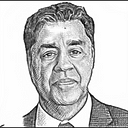Member-only story
How the New Wave of AI Could Shape Faith and Religion
We are at another Gutenberg moment for the faithful.
In a recent AI conference that I attended, Geoffrey Hinton, one of the key figures behind today’s AI, emphasized the dangers of new language models and tools by reminding us that models like GPT-4 and likes have become smart enough that they can manipulate humans and persuade them to act in ways which harms society and its values. Hinton’s main concern that as a society we are not ready to address the harms of such models. In this post, I want to share my thoughts on the possible impact of AI on people’s belief systems. I’ll start with historical context and then discuss the recent AI developments.
Looking at the history of last few millenia, we’ve come a long way from the times when most unknowns were considered the “Work of the Lord” to the “Age of Reason” where most everything could be explained by reasoning and science. Throughout the history, philosophers debated the nature of reality and scientists observed it with more and more precision. The process evolved over the centuries and sparked debates between top minds and split societies. Over time, science emerged as winner and centralized religious authorities gradually lost their stronghold on power.
The last change that shook the foundation of knowledge was Gutenberg’s printing press. And now…
